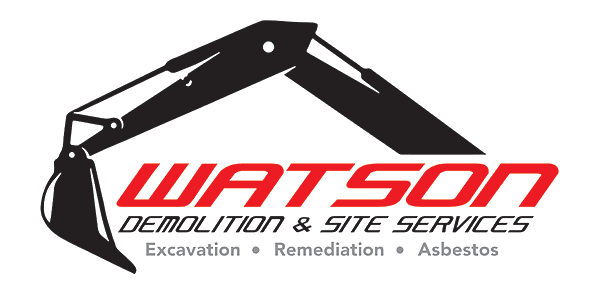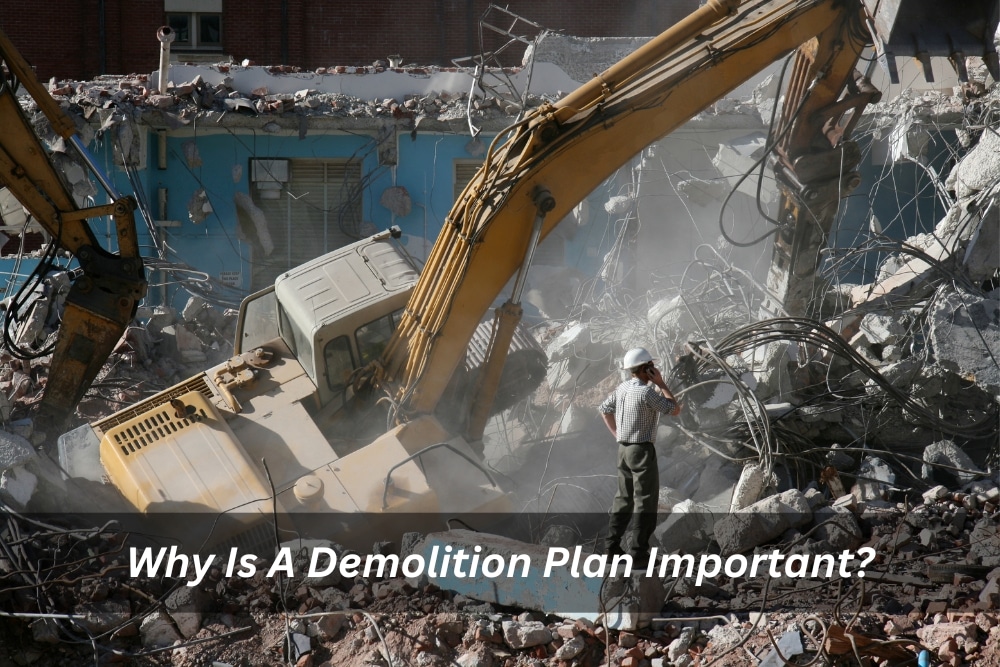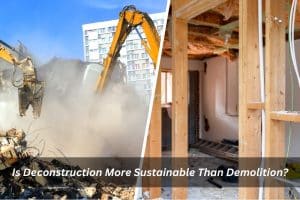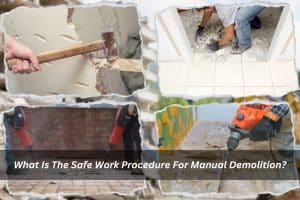Before the wrecking ball swings, a meticulous plan is essential for any demolition project. It’s more than just a formality – it’s the roadmap to ensuring safety, efficiency, and compliance. So, why exactly is a demolition plan so crucial?
What are the key benefits of having a demolition plan?
A well-crafted demolition plan offers a multitude of benefits, making it an indispensable tool for any project. Here are some key advantages:
- Improved safety: Demolition work inherently carries risks. A comprehensive plan identifies potential hazards like unstable structures, hazardous materials (asbestos, lead paint), and hidden utilities. This allows for implementing appropriate safety protocols, such as using personal protective equipment, controlling access to the site, and notifying relevant authorities. This proactive approach significantly reduces the risk of accidents and injuries for workers and the public.
- Increased efficiency and cost-effectiveness: A detailed plan streamlines the demolition process, minimising delays and unexpected costs. It clearly defines the scope of work, outlines the sequence of demolition, and specifies the equipment and resources required. This clarity prevents last-minute changes and ensures everyone involved is on the same page, leading to a smoother, more efficient demolition process.
- Reduced environmental impact: Demolition can generate significant dust, debris, and noise pollution. A well-thought-out plan addresses these concerns. It outlines measures to control dust and debris through water sprays, tarpaulins, and proper disposal methods. The plan can also minimise noise pollution by scheduling demolition activities during permitted hours and utilising noise-reduction techniques. Additionally, the plan can consider opportunities for recycling or reusing demolition materials, minimising the project’s environmental footprint.
- Enhanced compliance with regulations: Demolition projects are subject to various regulations regarding safety, environmental protection, and waste disposal. A comprehensive plan ensures all necessary permits and approvals are obtained before the demolition commences. It also outlines procedures for waste management, ensuring compliance with environmental regulations and avoiding potential fines or penalties.
How can a demolition plan help you avoid potential problems?
A detailed demolition plan acts as a proactive shield against potential problems that can derail the project. Here’s how:

- Identifying and mitigating safety hazards: By thoroughly assessing the site and outlining specific safety protocols, the plan proactively identifies and mitigates potential hazards. This can include measures like shoring up unstable structures, safely removing hazardous materials, and establishing clear communication protocols for workers.
- Minimising disruptions to surrounding areas: The plan considers the impact on neighbouring properties and businesses. It can outline measures like dust suppression, noise control, and establishing communication channels with nearby residents to minimise disruptions and maintain good community relations.
- Managing debris disposal and recycling: The plan specifies how demolition debris will be handled, transported, and disposed of responsibly. It can also explore opportunities for recycling or reusing materials, contributing to a more sustainable project.
- Avoiding delays caused by unforeseen issues: A thorough plan anticipates potential challenges, such as encountering unexpected structures or hidden utilities. By having contingency plans in place, the project can adapt and overcome these obstacles with minimal disruption, preventing costly delays.
Who is involved in creating a demolition plan?
Creating a successful demolition plan requires the collaboration of various stakeholders:

- Project owner or developer: The individual or entity initiating and funding the project.
- Demolition contractor: The company responsible for executing the demolition according to the plan.
- Engineer: Provides structural expertise and ensures the demolition process is safe and sound.
- Architect: May be involved in planning the deconstruction and potential salvage of materials.
- Environmental consultant: Advises on responsible waste management and minimising the project’s environmental impact.
- Permitting authorities: Government agencies responsible for issuing necessary permits and ensuring compliance with regulations.
What information should be included in a demolition plan?
A comprehensive demolition plan should encompass the following key elements:
- Scope of work: Clearly defines the structures to be demolished and the extent of the demolition.
- Demolition methods and equipment: Specifies the chosen demolition techniques and the equipment required for each stage.
- Safety procedures: Outlines detailed safety protocols to protect workers and the public.
- Dust and debris control measures: Describes strategies to minimise dust generation, manage debris effectively, and ensure proper disposal.
- Waste management plan: Specifies how demolition waste will be classified, transported, and disposed of responsibly, considering recycling or reuse opportunities.
- Schedule and timeline: Establishes a clear timeframe for each stage of the demolition process.
- Budget and cost estimates: Provides a realistic breakdown of expected costs associated with the demolition project.
When should you start planning for demolition?
The time to start planning for demolition is as early as possible in the project development process. Ideally, this should occur before applying for any permits. Early planning allows for a thorough assessment, securing necessary expertise, and ensuring the plan aligns with regulations and project goals.

How can you ensure your demolition plan is successful?
Here are some key strategies to ensure your demolition plan translates into a successful project:
- Involve all stakeholders in the planning process: Early and ongoing collaboration between the project owner, contractor, engineers, consultants, and authorities ensures everyone is aware of their roles, responsibilities, and potential challenges. This collaborative approach fosters open communication and strengthens the overall plan.
- Conduct a thorough site assessment: A detailed site assessment is crucial for identifying potential hazards, such as structural weaknesses, asbestos presence, or underground utilities. This information is essential for developing safe and effective demolition strategies.
- Obtain all necessary permits and approvals: Operating without proper permits can lead to significant delays and penalties. Working with permitting authorities early on ensures the plan adheres to all regulations and avoids compliance issues.
- Communicate effectively with all parties involved: Clear and consistent communication is vital throughout the project. Regular meetings, progress reports, and established communication channels ensure everyone is informed, aligned, and able to address any concerns promptly.
- Monitor and adapt the plan as needed: As with any project, unforeseen circumstances can arise. Regularly monitoring progress and adapting the plan as needed ensures the project stays on track and addresses any challenges that emerge.
Conclusion
All in all, a well-developed demolition plan is not just a formality; it’s the cornerstone of a safe, efficient, and responsible demolition project. By considering the various benefits, potential challenges, and key elements involved, you can create a plan that safeguards workers and the public, minimises environmental impact and ensures compliance with regulations. Remember, early planning, open communication, and a collaborative approach are essential for a successful demolition project.
At Watson Demolition & Site Services, we’re not just experts, we’re commercial demolition specialists. We understand the unique challenges and complexities of commercial projects, and our comprehensive demolition plans ensure a safe, efficient, and sustainable outcome.
Our experienced team guides you through every step, from initial planning and permitting to safe and responsible execution. We utilise state-of-the-art equipment, prioritise sustainable practices, and adhere to the highest safety standards.
Contact us today for a free consultation. Let us help you create a commercial demolition plan that paves the way for a successful project. We’ll ensure your demolition is completed responsibly, efficiently, and within budget.



